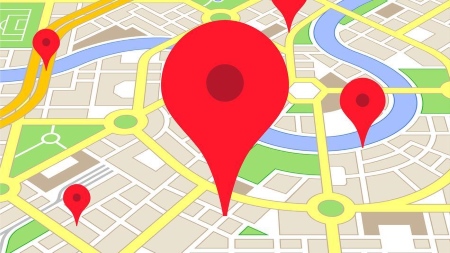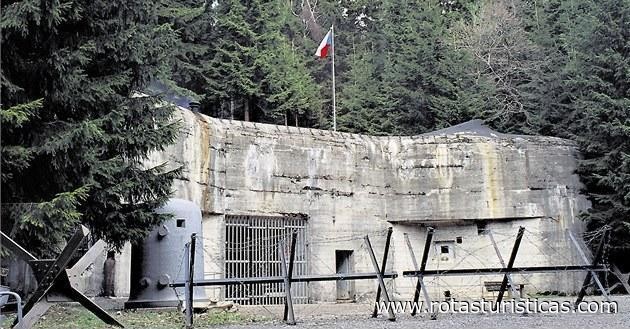Trutnov, Hradec Kralove region, Czech Republic
Suggest Place to Visit
6533
Track to location with GPS |
 |
The protection of Czechoslovakia's national border after World War was based on the principles of a democratic state. The most important element - the state force designed to guard the security of the national borders - was the FINANCIAL GUARD (FG). Its efforts mostly focused on the protection of the country's economic interests, a task inherited to a large extent from its predecessors; the Financial Guard was established long before 1918, specifically on 22 December 1842, based on a decision by Emperor Ferdinand I.
The Financial Guard's border activities were governed by the Customs Act No. 114/1927 Coll., Which authorized the FG to guard the national border and supervise passenger traffic as well as the circulation of goods. The Act also provides for the Guard's obligation to participate in the military defense of the national borders, if necessary.
The life and service of an FG member were challenging; not everyone could become a member - there were tough requirements in the area of health, physical abilities, loyalty, discipline and other aspects and every guard had to meet them and take an oath of allegiance. For example, the FG members were not even allowed to get married without permission. And their service was equally demanding. In winter, in summer, always in a uniform, in a tough and often very rugged terrain, at daytime as well as at night, living in barracks without any holidays (e.g. with guaranteed annual eight-day leave) etc.
The government had to respond to the international worsening situation, especially in the neighboring Germany, and issued its Regulation No. 270/1936 Coll. of 23 October 1936 on the establishment of the State Defense Guard (SDG). The primary purpose of this measure was to provide an immediate defense of the national borders and to facilitate the arrival of the army. The SDG comprised members of the Financial Guard, gendarmes, state police officers and military reinforcements. The importance of the SDG forces rested in particular in the ability of its immediate deployment, i.e. taking positions along the border.
When the Czechoslovak government accepted the so-called Munich Agreement on Friday, 30 September 1938, the nation was in a state of shock. The FG members, along with gendarmes and police officers, remained in their positions until the bitter end of the Republic. Over forty of them died defending their country and this exhibition, together with memorial plaques of those who did not survive, commemorates their fight.
The FG was dissolved on 1 January 1949 and merged with the National Security Force.
The Museum of Czechoslovakian Fortification is located in Infantry Block K-S-14, a part of light and heavy fortifications at the Czech-Polish border near the town of Králíky.
Králíky is the natural center in the area situated under Mount Kralický Sněžník in north-east Bohemia, near the border with Poland. It is surrounded by picturesque countryside with deep forests, unique flora and fauna, and many beauty spots. It is also one of the least polluted areas in the Czech Republic. There are a lot of marked footpaths and many scenic panoramic views in addition to the general peace and quiet of the region.
Comments
We don´t have yet any comments about:
Czechoslovak Fortification Museum (Trutnov)
Czechoslovak Fortification Museum (Trutnov)
Be the first to leave a comment as it is very important to inform other people
Outros locais a visitar
Within a radius of 20 km from:Czechoslovak Fortification Museum (Trutnov)
Unfortunately we do not have information on other places to visit in this area yet
Hotel reservation near Czechoslovak Fortification Museum (Trutnov) within a radius of 20 km
Why to book with TOURISTISCHE ROUTEN
The best prices
Our partnerships with the world´s largest operators offer research on the best market prices.
More options
At Rotas Turisticos you can book the hotel, buy the air ticket, book the transfer from the airport to the hotel and vice versa, book the local excursions, rent the car, take travel insurance and consult the places to visit and where to go.
Holiday Tips & Destinations
Hundreds of holiday destinations with all the options that allow you to easily choose the destination that best suits your dream vacation.
TOURISTISCHE ROUTEN
Links






